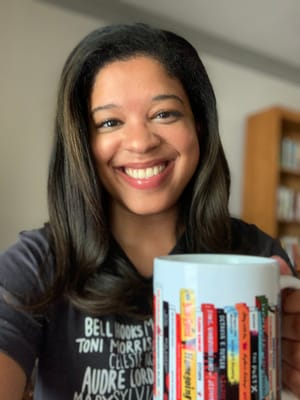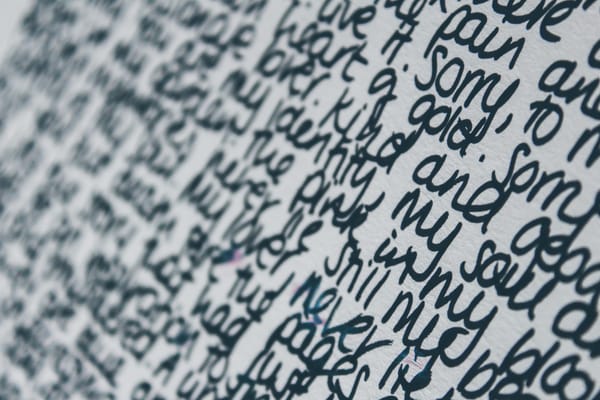I know that in my skin, I’m a minority here. I’m a minority who’s searching for empathy and compassion in a world that wishes to paint over my skin with a comfortable neutral and attempts to silence my voice and disguises it as being “color blind,” as if that’s a noble stance. It’s a world that also believes muting words like racism, injustice, and privilege means they don’t exist.
In the time since the plight of black lives has recently been given a sliver of spotlight, I—and I know many others—have wrestled with heaviness and heartbreak. Likely against my best interest, I’ve allowed myself to process it mostly internally in the form of boiling confusion and bouts of hopelessness. Injustice, assault, and the short end of the stick are far from new, but to turn on your TV or even log onto social media now is to access a myriad of opinions, reports, rumors, statistics, movements and, as we’ve viewed too many times, images and videos that give us a graphic glimpse into just how terrifying our world is.
To be black is to consider your image, history, and current position in light of systematic racism, disproportionate police violence, mass incarceration, and more issues we may not even be aware of yet, and the racial tension heightened by you having the audacity to call it out and protest it. You have to consider the current state of society and how it views you and affects you, practically and under the surface, and you have no choice in the matter. Beyond being tired of seeing black lives turned into hashtags calling for justice for said lives once they’re taken, is the reality that you could be one. What an existence. What a heavy weight.
With one “racially charged” incident after another—and the noticeable absence of basic human decency, reason, empathy, or criminal convictions—how are you supposed to go on with “business as usual” when your brother’s blood is in the street again? All you can hear is the loud and clear message that your black life doesn’t matter, just as historically and within the dynamics of society, it never has.
A Distorted Image
I almost exclusively wanted to read slavery books as a child and I read a ton of them, so I’ve been painfully aware for a while that black folks not being viewed as equal or worthy is a long-held practice. From the days of American slavery, to counting as three-fifths of a person, to the Jim Crow era and on into the ramifications of these that still flow through black neighborhoods and families.
When you’re trying to survive and thrive in the same nation that enslaved and oppressed those of your likeness for hundreds of years, you have to consider that there’s still work to be done in the healing of society’s eyesight when you’re still viewed as inferior and dangerous because of that likeness.
Negative views of black people are important to recognize, are damaging, and stretch farther than seemingly harmless stereotypes. There’s work to do in order to bring black men and women into a clear and proper view, and it’s going to take acknowledgement, accountability, and action that disturbs the comfortable place where the notion of white superiority has been sitting for a long, long time.
We’re seeing the effects of it boil over again now, but we have to be willing to recognize that the heat didn’t just start to rise. If you don’t seek to understand the history and, more importantly, the human beings of the race, you’ll never understand the rage. Building a proper view is building truly reconciling relationships that result in changed systems and practices of equality instead of claiming diversity just because it’s a buzzword. After all, we’re in the same America that not long ago had segregated restaurants and schools, and still has segregated churches.
It’s my belief and hope that those who claim Christianity will challenge themselves to view black people (whom I’m singling out and focusing in on because of the very specific, aforementioned distorted view) as God sees us—made in His image.
It’s important to note that when God created mankind in His image, he set us apart from animals and made us to glorify Him, reflect Him, and fellowship with Him and with each other. Even after the fall, there could be no destruction to the image of God. We bear His image still, even as a colorful bunch of humans on Earth. Our being made in the image of God directs us to worship Him as the only superior one and cancels the idea that one race could be elevated over another. Try as it may, even racism can’t erase the imago dei from black skin.
Clear Eyes and Open Ears
For me, the most disturbing and hurtful part of watching current, race-centered events unfold has been the reaction of Christians who simply refuse to “mourn with those who mourn.” (Romans 12:15) Please don’t sit in a mono-ethnic bubble and pretend Christ didn’t call us to care. Further aggravating the distress is hearing or reading comments that minimize mourning or attempt to drown out cries for justice with infuriating deflections.
But on the other side of loud, compassionless remarks is silence. It’s a privilege itself to remain unaffected while rebuking racism mentally or maybe in a circle of black counterparts but not call it out in times of tension, turmoil, and violence. It’s the belief that silence and turning a “color blind” eye is the answer. If you truly want the answer, ask the one who’s mourning and listen to their heart.
In times when a community of people says, in one way or another, that they’re hurting and tired, it’s time to find some empathy and not an excuse. It’s not time for a comeback that stings and censors; it’s time for compassion that helps. I pray the actions taken, direction pursued, and relationships built going forward will inspire a clear vision that sees the problem not as the black man, but as the way he’s been, and is being, seen.








Member discussion